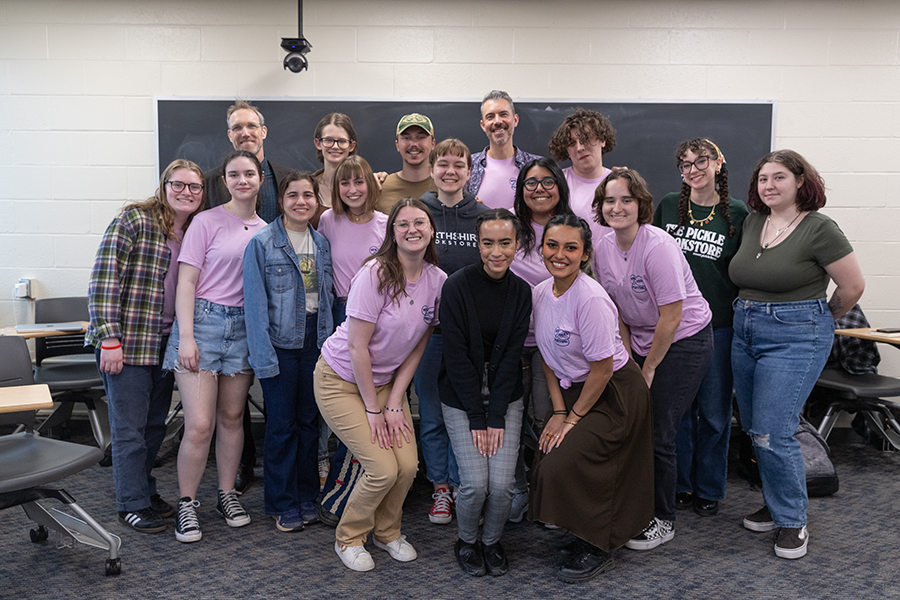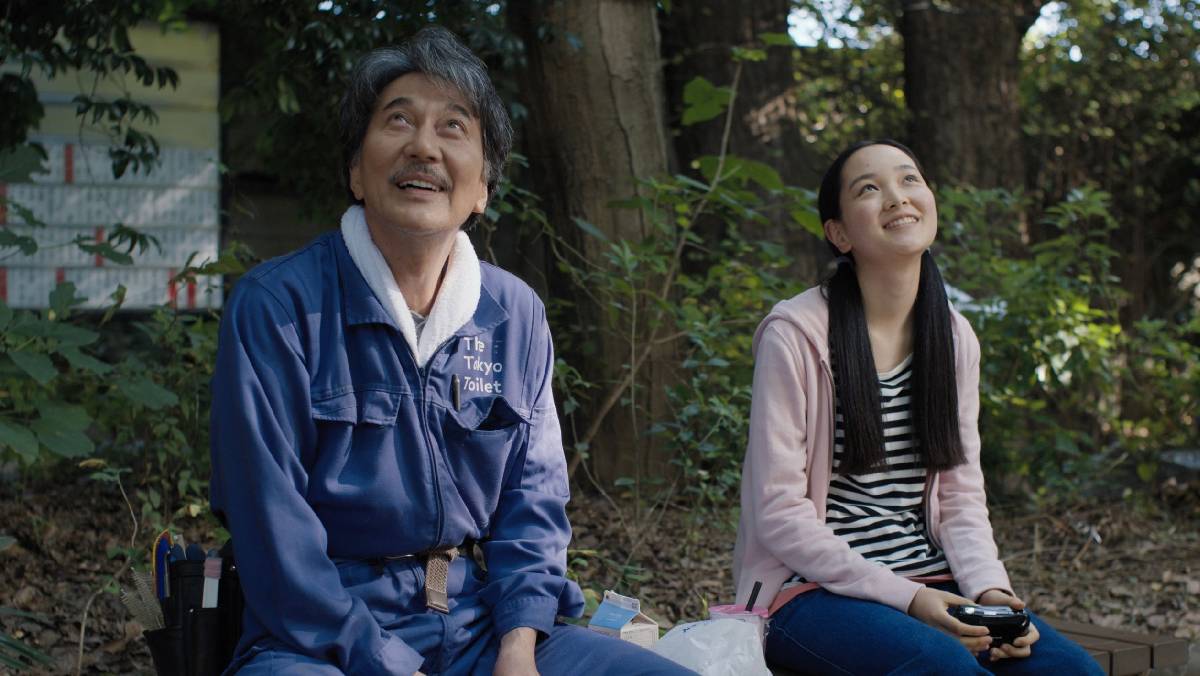Caressing her hair in his hands, Nick Dunne (Ben Affleck) reflects on his wife’s beauty. Through voice-over, he expresses that Amy’s (Rosamund Pike’s) head is her best feature and he would like nothing more than to crack it open and dig through the brains, just to know what she is thinking. Suddenly, she looks up, her expression vague but thoughtful. Shattering the command of her husband’s interior monologue and penetrating the previously voyeuristic viewpoint of the audience, it is very quickly clear that Amy Dunne’s mind will be just as great a mystery to the audience as it is to her husband. Such violent language and murky truths epitomize the thematic gist of “Gone Girl,” a film in which the whole vicious affair of marriage is dragged out for discussion. With director David Fincher at the helm, there will be no easy answers.
The lovers, Nick and Amy, meet for the first time at a party. She comes from a privileged background and he does not, but their connection is immediate. Like seemingly ideal sparring partners, their banter is reciprocally sharp, playful and sexy. The love is there for sure, but their exchanges, shown via flashbacks, begin to resemble increasingly serious verbal boxing matches between two venomous competitors. When the question of engagement is eventually popped, one must wonder if these two can possibly co-exist. As expected, post-marital troubles escalate over the years, and the culmination is Amy’s disappearance on the morning of the couple’s fifth anniversary. Sympathy for Nick quickly turns to scrutiny, as the wheels of the media circus begin to spin and revelations drop with crushing force.
Like its shifty characters, “Gone Girl” is a hard film to pin down. It is unpredictably structured, skipping from present day to past events, while using a pair of unreliable narrators, one of which is possibly speaking from beyond the grave, to share both sides of the story. The film frequently subverts expectations, pulling an important reveal early on that allows late narrative crescendos to hit with greater ferocity. The audience’s focus is meaningfully drawn away from what matters, roped in by the sensation of the initial mystery, but kept in suspense by the thematic dynamics that emerge once that mystery dissipates.
David Fincher manages all of this with a typically cool touch. A master of detailed storytelling, the precision with which he stations his plot points keeps the film’s thriller aspect in check, but it is his approach to drama that is truly fascinating. While also functioning as a satire on the media, “Gone Girl” works primarily as a commentary on agency, marital love and gender-split power dynamics. Fincher relishes in the harsh facts of his cinematic world and in the sharp tongues that speak them, effectively cutting through the sentimentality that would ordinarily accompany a story like this. He’s aided by the script in this respect, which contains dialogue that recalls “The Social Network” in its rapidity and acerbic wit. Because of these choices, “Gone Girl” takes on a removed sensibility that may only serve to distance the viewer from the events, but even if emotionally disconnected, one will likely be at least compelled by the intricacy of the story.
“Gone Girl’s” ensemble is the kind that one often can only dream about. From those top-billed to the bit players, Fincher gets the best out of everyone. Affleck is well cast and gives arguably the best performance of his career as the beleaguered and criminally ambiguous Nick. Alternately sympathetic and untrustworthy, his good-guy persona is put to good use.
Carrie Coon nearly steals the show in the role of Nick’s supportive but tough sister, and pleasantly surprising in a couple of against-type roles are Tyler Perry as Nick’s charismatic lawyer and Neil Patrick Harris as a shady ex-boyfriend of Amy’s. However, by the end of the film, it is Pike’s performance that stands above all. Her character is potentially iconic, and it is entirely because of her layered turn as the titular missing woman that this is achieved.
“Gone Girl’s” most impressive feat is its ability to take page-turning, largely implausible crime fiction material and elevate it to something more significant. Hidden in the guise of a pulpy thriller, the film’s treatment of sexual politics is a joy to explore. It shifts the role of the aggressor, sending both men and women on the offensive and defensive, toying with the relationship’s dynamic and challenging traditional roles. Funny, frightening and fascinating, “Gone Girl” is a 2 1/2 hour-long roller coaster ride worth taking.


















